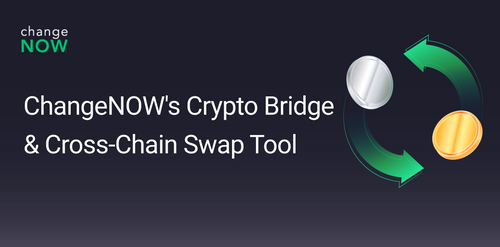MiCA: The EU's Bold Move to Regulate the Crypto Industry
Understanding the Current State of Crypto Regulation
Before diving into what MiCA is and why it's essential, it's worth taking a moment to understand the current state of crypto regulation. Right now, there are no universal regulations in place for cryptocurrency, and the rules that do exist vary widely from country to country.

Some countries, like Japan, have embraced cryptocurrency and put in place clear and comprehensive regulations that protect investors and businesses alike. Others, like China, have banned cryptocurrency outright. And still, others, like the United States, are somewhere in between, with a patchwork of regulations that can be difficult to navigate.
This lack of consistency and clarity makes it challenging for businesses and investors to operate in the crypto industry. It also leaves the door open for bad actors to take advantage of the lack of oversight and regulation.
What Is MiCA and Why Is It Important?
MiCA, which stands for Markets in Crypto-Assets, is a proposed regulatory framework aimed at providing a clear legal framework for the cryptocurrency market in the EU. The framework is designed to address issues such as investor protection, market integrity, and financial stability, which are currently not covered by existing EU financial regulations.
The proposal sets out a series of rules and requirements that will apply to all crypto-assets and service providers operating within the EU. Under the new rules, companies offering cryptocurrency services will be required to obtain a license from their national financial regulator and adhere to strict reporting and transparency requirements.
The European Securities and Markets Authority (ESMA) has been granted the power to restrict and ban crypto platforms that do not adequately protect investors or pose a threat to financial stability or market integrity. Additionally, MiCA addresses environmental concerns by requiring firms to disclose their energy consumption.
In the same session, the EU Parliament also passed the Transfer of Funds regulation, which aims to reduce anonymity in transferring cryptocurrencies such as Bitcoin by requiring crypto operators to screen, record, and communicate information on the sender and recipient to combat money laundering.
MiCA is important because it provides much-needed clarity and consistency in an industry that has been plagued by confusion and uncertainty. It helps to create a level playing field for businesses and investors, making it easier for them to operate and invest in the crypto industry.
How Will MiCA Impact the Crypto Industry?
The consultation phase for MiCA began in September 2020 and is expected to become law no earlier than Q3 2024. MiCA will require all crypto-asset issuers, including those outside the EU, to comply with EU regulations if they want to offer their services to EU citizens. This will mean that crypto exchanges, wallet providers, and other crypto asset service providers will need to obtain authorization from EU regulators and comply with strict reporting and disclosure requirements.
The proposed regulation will also introduce a new category of crypto assets called "e-money tokens" that are backed by fiat currency and are subject to the same regulations as traditional e-money issuers.
The MiCA proposal is likely to have a significant impact on the crypto industry in the EU and beyond. On the one hand, it will provide greater clarity and legal certainty for crypto businesses, which should help to attract more institutional investors and increase mainstream adoption of cryptocurrencies.
On the other hand, it will also increase compliance costs and regulatory burdens for crypto businesses, which could lead to market consolidation and reduced competition. Moreover, the proposal may also lead to some regulatory arbitrage, as some crypto companies may choose to operate in jurisdictions with less stringent regulations.
Overall, it's important to note that MiCA is just one piece of the puzzle when it comes to the legal status of cryptocurrencies. There are many other regulations and laws that impact the use of cryptocurrencies around the world, and the global regulatory landscape is constantly evolving.
Conclusion
In conclusion, the introduction of MiCA is a significant milestone in the regulation of the cryptocurrency industry. It recognizes the importance of innovation and consumer protection. It is now up to crypto-asset service providers to adhere to the new rules and requirements to ensure that they operate within the framework of the law. Investors can now enter the world of cryptocurrency with greater confidence, knowing that the EU is taking steps to regulate the industry.
If you're interested in getting involved in the world of cryptocurrencies, it's important to stay up-to-date on the latest regulations and developments. And if you're ready to take the plunge, consider using ChangeNOW to enter the world of crypto. With fast, secure transactions and a wide range of supported cryptocurrencies, ChangeNOW is the perfect platform for anyone looking to invest in the future of digital assets.



